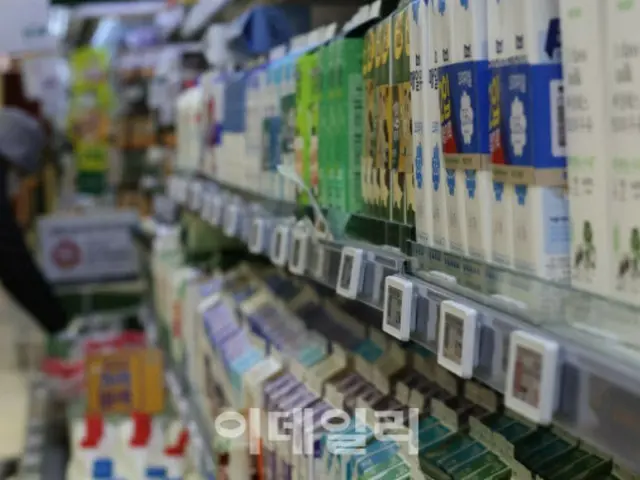According to the country and city comparison statistics website Numbeo on the 1st, the average price of milk (1 liter) in South Korea was $2.07 (about 325 yen), ranking 8th in the world. Japan, ranked 43rd (1.
This is higher than other major countries such as Korea (US$1.41, about 222 yen), and the 73rd-ranked United States (US$1.06, about 167 yen). The price of milk in Korea is decided every year through negotiations by the Korea Dairy Promotion Association, which is made up of dairy farmers and the dairy industry.
At the end of May, the Statistics Bureau announced production costs through a survey of livestock production costs for the previous year, and the tax rate is set based on this.
The average annual average annual average price for 2020 was 1,003 won (about 114 yen), up 44 won (about 5 yen, 4.6%) from a year ago. This was due to an increase in feed costs and in-house labor costs.
The gap has narrowed, but there are still factors that could lead to an increase. The Dairy Promotion Association is scheduled to hold its first milk price negotiations on the 11th of next month. This year, the price of milk is expected to increase by up to 26 won (about 3 yen).
Currently, according to the "Regulations for the Differential Price System for Different Uses of Raw Milk," if the ratio of feed costs is 60% or less, the price can be raised within the range of -30% to 60% of the increase in production costs (44 won).
Last year, the cost of feed was 588 won (about 69 yen), up 18 won (about 2 yen), so the proportion of the increase in production costs was 40.9%, which corresponds to this.
However, negotiations can be held on a negative basis only if the fluctuation range of raw milk consumption for drinking milk decreases by 10% or more.
The amount of milk used will be reduced by 2% and can be negotiated in the range of 0-60%, meaning the price of milk can be raised from 0 won to a maximum of 26 won (about 3 yen).
The price was agreed upon at 1,084 won (about 123 yen) per liter, up 8.84%. Accordingly, the differential price system for different uses allows the supply of drinking milk, which is relatively high, to be increased when there is an oversupply.
Instead of reducing the amount, they can increase processed milk. The adjustment of raw milk volume by use is carried out every two years, and this year is the first time negotiations for the adjustment have been held. Last year, the excess amount of drinking milk exceeded 5%.
As a result, the range of reductions in drinking milk in the current raw milk negotiations is 9,112 to 27,337 tons.
There are also concerns about "lucflation" (milk + inflation). The South Korean government plans to take into account the price situation and either freeze the base price of raw milk or mediate to raise it to a minimum level.
A Shinabe official said, "Through cooperation with producers and dairy companies, we will mediate to freeze milk prices or raise them to a minimum level."
2024/06/01 21:32 KST
Copyrights(C) Edaily wowkorea.jp 78

